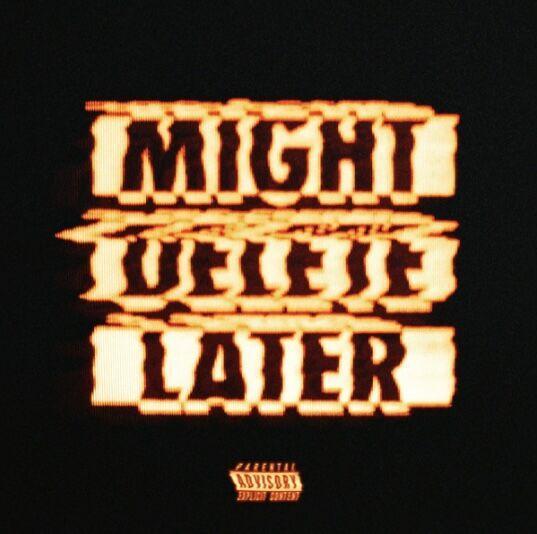The ongoing debate, now turned into rap beef, of the “Big 3” names in contemporary hip-hop dates back to the 2010s yet continues to be a feud of rising tempers and bold claims. The three artists the debate revolves around have each made their impact on the genre at large.
Since the 2010s, Kendrick Lamar has consistently released critically acclaimed, sonically diverse, and thought-provoking conscious hip-hop records that continue to spark conversations lyrically and musically in pop culture. Drake has built an overwhelmingly lucrative empire with his fusions of hip-hop, R&B, and pop, and this era of music streaming services has made him one of the most popular artists of all time. J. Cole has offered a discography built on the sounds of traditional and southern hip-hop while also forming his Dreamville Records collective with a formidable roster of artists such as JID, Ari Lennox and Earthgang among several others.
Reigniting the conversation was Kendrick’s feature on the collaborative track with Future and Metro Boomin “Like That”, in which he takes shots at both of his competitors and asserts himself as the only artist worthy of such praise with bars such as, “F*** sneak dissin’, first-person shooter, I hope they came with three switches… Motherf*** the big three… it’s just big me”. After a period of anticipation from the hip-hop crowd, J. Cole was the first to respond with his single “7-Minute Drill”; a song that has now been removed from streaming platforms and YouTube and publicly apologized for by J. Cole after it was met with widespread criticism.
Over an unintimidating, rushed beat with a tacked-on switch-up in the middle of the track, J. Cole makes dubious claims regarding the success and acclaim of Lamar’s discography with lyrics such as, “He still doin’ shows, but fell off like The Simpsons/Your first sh*t was classic, your last sh*t was tragic… but they gassed it/Your third sh*t was massive and that was your prime/I was trailin’ right behind and I just now hit mine”. Despite the backlash, J. Cole remained confident and announced the surprise release of a mix-tape fittingly titled “Might Delete Later”. The title and cover art, along with its surprise release, hinted at a more aggressive Cole who was ready to aim his critics and adversaries with this new demonstration of his lyrical, musical, and performance capabilities.
While J. Cole’s records boast a significant amount of critical appraisal, the relevance and continued amazement at his opponent’s discography suggests that such claims come from a place of insecurity rather than earnestness. In truth, J. Cole’s comparison with Kendrick has always overshadowed any discussion of his own music. When comparing most rappers with one of the most universally acclaimed rappers of all time, undoubtedly the works of the opposing side may pale in comparison. Thus, it is important – even in a record where the lead single directly responds to these exact comparisons – to instead consider the merits of J. Cole’s music and how it impacts or measures up to the genre of hip-hop at large. Even doing this, however, shows that the waters don’t run as deep as both he and his most ardent defenders would like others to believe.
Production-wise, the mixtape generally isn’t as lackluster as its lead single suggests. The chopped-up soul-sampling over southern hip-hop trap percussion provides a familiar backdrop for J. Cole and company to work with, occasionally getting a drill beat or R&B hip-hop aesthetic mixed into a track. While it’s competent, it rarely ever reaches past being serviceable both in contemporary hip-hop and in J. Cole’s own back catalog. There isn’t much you could point to as being exceptional or doing anything else other than checking off the boxes for his familiar, traditional sound. The end product isn’t reflective of his supposed status and experience as an artist, and it doesn’t demonstrate a rapper who embraces innovation and variety in his tracks so much as it does a rapper who is a little too comfortable with his schtick.
However, the focus on a mixtape primarily about rap beef should remain on the lyricism and performances. The boastful energy J. Cole gives out on these tracks certainly gives off the impression of a lyrical miracle ready to dish out menacing and harsh clapbacks at his naysayers, but the actual substance offers very little for that energy to stand on. What J. Cole fans often praise in his music are the narratives or messages strewn about his records that may offer insight into the harsh reality of his life from unique perspectives. Since the shift in subject in this mixtape has now put Cole on the offensive, he attempts to show off his lyrical ability independent from these narrative structures and unintentionally displays his inferiority to his competitors more transparently than ever before.
The first track “Pricey” featuring Young Dro, Gucci Mane and Dreamville member Ari Lennox features the former on the chorus, the second in a spoken word outro, and the third on the pre-chorus while J. Cole advertises his authenticity as an artist by way of eye-roll-worthy bars about Dave Chappelle and the whinings of others “Dave Chappelle on his latest Netflix/Go ‘head, try to cancel my shit…Lately, my biggest addiction been lookin’ online/Where somebody always offended, I’m sick of this cryin’”. Ignoring that this line becomes somehow more tone-deaf at one particularly embarrassing moment later in the tracklist, J. Cole gives very little lyrical substance that other artists are not doing better than him while sounding confident in his tired stance of bravado.
The second track “Crocodile Tearz” is a more straightforward take on sounding menacing with a beat that sounds as thrown together as his single, if not more. The energy and aggressive nature of the track might be able to carry an artist who hasn’t had over 15 years of experience. In J. Cole’s case, it leaves out one ear as quickly as it comes in the other. The following track “Ready ‘24” featuring Cam’ron on the third verse offers one of the more unique and impressive beats on the mixtape, with the chopped soul sample providing a sense of nostalgia to accompany the somewhat triumphant progression and percussion arrangement. J. Cole offers his most fired-up performance on the album which, when combined with the production, makes up for the continued lack of lyrical substance.
Following this, the song “Hunting Wabbits” attempts a darker, more atmospheric trap beat with a performance more monotone than intimidatingly brooding. Perhaps its most noteworthy quality is its sampling of a MeatCanyon video, a YouTube animator mostly known for his signature style of disturbing and freakish parodies of various cartoons. The garish choice provides an element of humor to an otherwise dull track. Starting the next third of the mixtape, “H.Y.B.” featuring Central Cee gives listeners a straightforward trap beat on which J. Cole’s next idea at sounding threatening is to recite part of the alphabet to let us know he doesn’t take Ls “A-B-C-D-E-F-G, H-I-J-K, uh, M-N-O-P/That’s little me in the classroom askin’, “What’s L?” (Uh)/I never been known to take those”. Central Cee outshines J. Cole just by not having a bar as groan-inducing as that.
Marking the halfway point, “Fever” comes off as a half-hearted Drake impression that is so tepid that it makes Drake’s often wimpy and insincere presence feel like The Weeknd in comparison. The monotone autotune on J. Cole’s voice oozes less charisma and charm than his competitor, coming off as a poor impersonation of one of the most popular artists currently by an artist who should have more competency. Kicking off the next half of the mixtape, “Stickz N Stonez” offers a more traditional hip-hop beat with plucked string samples and a flow reminiscent of the artist’s sound on his project “2014 Forest Hills Drive”. Despite being a sound that sounds increasingly dated and rehashed, it provides an oasis compared to much of the tracklist before and after it.
The ninth track “Stealth Mode” featuring Dreamville artist Bas on the bridge offers another helping of an empty trap beat, thankfully devoid of any alphabet bars this time. Over the beat, J. Cole talks about his attempts at mending broken friendships and extending olive branches to those whom he once held animosity against, a potentially compelling subject matter that is left sparse by the brevity of the track. Despite this, he manages to give listeners one of his more impressive flows in the mixtape on the tenth track “3001”, offering humor and braggadocio that, while not more impressive than much of the material before, doesn’t see him over-extending himself into elements out of his depth or making bars that completely deflate his attempt to sound engaging and tough.
The penultimate track “Trae The Truth in Ibiza” offers his most lyrically personal and reflective song on the project, in some ways to a fault. Over the emotional strings of the straightforward hip-hop beat, J. Cole highlights his internal conflict of perfectionism and hoping that he isn’t still the same after all these years “Meanwhile the world done changed/Suddenly songs I was loving last year don’t feel the same/Somebody feel my pain/Please, somebody say I changed/All of these years done passed, I hope I ain’t still the same”. Ultimately, he concludes that it’s best to stop sitting on developing works waiting for perfection, and embrace the flaws that make up his artistic identity, a statement that is admirable yet revealing for a project such as this. Undoubtedly, Cole’s confidence in his strengths and flaws is commendable and a genuine moment of humility on the mixtape; still, it’s difficult to find the merit in what’s said here when looking back at the bevy of slip-ups and mediocre bars littered throughout the project.
Despite these flaws, it proves to be a much more suitable closer than the original closer, the lead single “7 Minute Drill”. When comparing the two tracks, it becomes even clearer how rushed the single was to make a swift response that would simultaneously tease the mixtape. The now-deleted track most definitely allows the project to end on a better note, yet the sour feel of the song still lingers over the mixtape, and no amount of removal from streaming services can remedy it. Props to J. Cole for giving audiences a single that lived up to the title of its project.
It feels as though J. Cole’s controversy with conscious hip-hop rapper Noname happened only a year or two ago, when in reality it was twice as long as the latter. Both artists have managed to make amends with one another and admit to their faults in addressing the situation they found themselves in. While Cole received much criticism for his response, the aftermath of the controversy arguably demonstrated an instance of humility for J. Cole and Noname and the maturity to grow together from the animosity amidst such a politically turbulent time.
But this isn’t a feud between artists and their responses to ongoing tragedies in the black community; it’s a rap beef between artists to argue how their musical strengths outweigh their adversaries. As a result, one can only feel somewhat embarrassed for J. Cole in both his response to the debate and his eventual white flag. Perhaps he should redirect his focus to polishing his increasingly tired style of hip-hop before he aims at his more successful contemporaries. Otherwise, we might just have another track and subsequent apology to anticipate four years from now.








